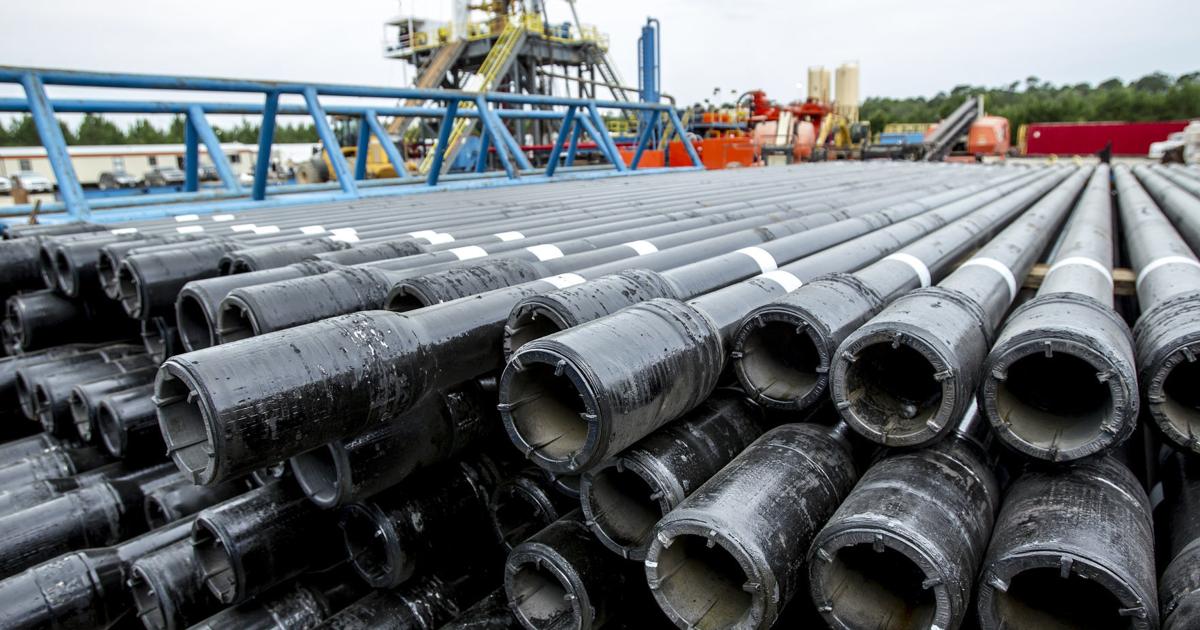A package of bills aimed at boosting oil production and making Louisiana’s tax code more competitive with those of neighboring states sailed through the Louisiana House Thursday. But the measures could face headwinds in the Senate, amid questions over their long-term impact on state coffers.
House Bill 600, sponsored by state Rep. Brett Geymann, a Republican from Lake Charles, would cut the severance tax rate on crude oil extracted from new wells nearly in half, reducing revenues by around $87 million over a five-year period, according to a legislative fiscal note.
To offset those losses, Geymann’s House Bill 495 would limit a severance tax exemption for natural gas produced from horizontally drilled wells, resulting in $99 million in additional revenue during the same period, according to its fiscal note.
Taken together, the bills would mean slightly more tax money for Louisiana over the next five years. But long term, the changes would likely result in a net reduction of tax revenues, according to an economist who worked on the proposal and said the higher taxes on gas activity would not make up for the losses from oil drilling.
Reducing Louisiana’s severance tax on oil has long been a priority of the business lobby, energy industry and Republican elected officials, including Gov. Jeff Landry and House Speaker Phillip DeVillier, R-Eunice. At 12.5%, it’s the highest severance tax in the continental U.S. and hasn’t changed since 1973.
Landry’s transition committee argued that reducing the tax would “incentivize and amplify drilling in south Louisiana,” and DeVillier sponsored bills each year from 2020-2023 that would’ve reduced the rate, though none became law.
During Landry’s special tax session last fall, Republican state Rep. Neil Riser of Columbia again tried to reduce the tax with a 40-page bill that would have revised the tax rate for both crude oil and natural gas and the method for calculating their value and quantities. But the bill was eventually whittled down to two pages and, though enacted, made few changes to existing law.
After that fizzled, Landry, DeVillier and Geymann brought in Greg Upton, executive director of LSU’s Center for Energy Studies, to help craft a simpler proposal that would be revenue-neutral over a five-year period, Upton said.
Finding the sweet spot
Supporters of the proposals argue that cutting the severance tax on oil to 6.5% will result in more oil production, particularly in south Louisiana.
“Getting the severance tax lowered on oil will bring some much needed prosperity back to the coast,” state Rep. Jacob Landry, R-Erath, told lawmakers at a committee hearing Monday. Landry is the president of Industrial and Oilfield Services, Inc., an oil and gas construction firm.
“We’re looking at projects that are feasible now with the lower severance tax,” he added.
Geymann said he hopes that the tax cut will spur enough new oil production to make up for the loss in revenue.
“In my thinking, if you incentivize an industry, and they have more production than they normally would, you would see an increase in revenue,” he said.
But Upton said that’s unlikely. While more wells would be drilled, Upton said he doesn’t think it would be be significant enough to offset the revenues lost from reducing the tax in the first place.
In long run, Upton said, the changes are likely to result in less revenue for Louisiana.
That’s because the severance tax reduction in HB600 is only for new oil wells, so as time progresses, more and more wells will be at the lower rate, resulting in fewer revenues over time, Upton said.
Meanwhile, the boost in revenue from limiting the tax exemption for natural gas will be felt more immediately. Louisiana currently exempts severance taxes on natural gas produced from new horizontal wells for the first 24 months of operation or until the cost of constructing the well is recuperated. HB495 reduces that to 18 months or until well payout is achieved.
The measure is also aimed at making Louisiana more competitive with it neighbors. The severance tax on oil is 4.6 percent in Texas and 5 percent in both Arkansas and Mississippi, though Texas and four other states also charge property taxes on oil and gas reserves in the ground, while Louisiana doesn’t.
Meanwhile, natural gas production in Louisiana is taxed at a relatively low rate. “It’s just true that oil has a way higher tax burden than natural gas in Louisiana,” Upton said.
Geymann said he’s working with both oil and natural gas interests to make sure everybody is happy. “You don’t want to hurt one to help the other,” he said. “We’re trying to find that sweet spot where everybody can win.”
On the decline
The severance tax used to be a big generator of state revenues. In the 1970s, mineral revenues — which include severance, royalties, bonuses and rental payments — accounted for upwards of 40% of state revenues.
But oil production on state lands and water bottoms has been on the steady decline since the the oil bust in the 1980s. In fiscal year 2024, mineral revenues accounted for roughly 7% of state revenues.
The state severance tax doesn’t apply to oil produced off-shore in federal waters, which has increased in recent years.
Local governments will be watching the tax changes closely. Twenty percent of severance tax collections, by law, go to parish governments, though the amount that’s remitted to each local government is capped at around $1.3 million. Lowering the severance tax could mean less money for parishes that don’t meet that cap.
